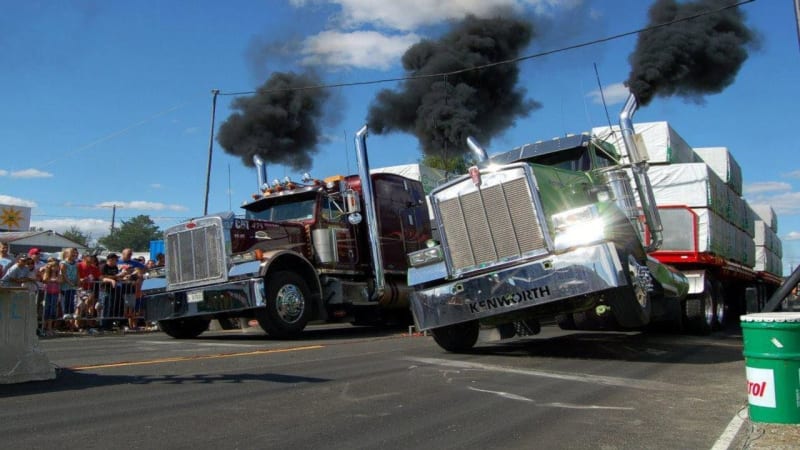Hello all,
I am trying to analyze the behavior of the chassis/frame of a big rig truck during initial launch. I want to understand how much force the engine torque would cause the front of the truck to twist, lifting the driver side, similar to the attached photo. This twisting most-likely occurs when the truck is hauling heavy cargo, keeping the rear wheels on to the ground. Is there any way to calculate the reaction forces with given big rig specifications such as engine torque and power? Ultimately, this would help me understand how this twisting effect of the chassis would affect parts and accessories attached to the truck such as headache racks, custom built cabinets, etc.
Thanks!

I am trying to analyze the behavior of the chassis/frame of a big rig truck during initial launch. I want to understand how much force the engine torque would cause the front of the truck to twist, lifting the driver side, similar to the attached photo. This twisting most-likely occurs when the truck is hauling heavy cargo, keeping the rear wheels on to the ground. Is there any way to calculate the reaction forces with given big rig specifications such as engine torque and power? Ultimately, this would help me understand how this twisting effect of the chassis would affect parts and accessories attached to the truck such as headache racks, custom built cabinets, etc.
Thanks!

